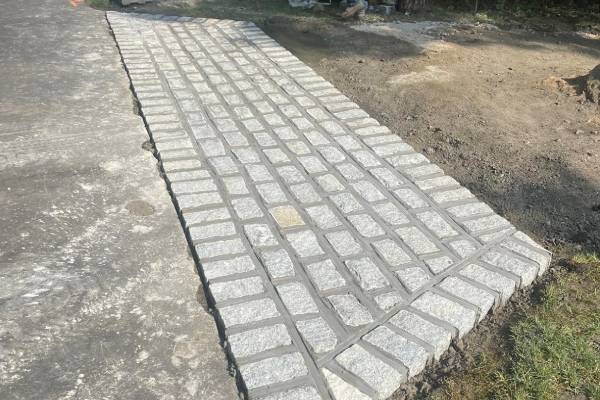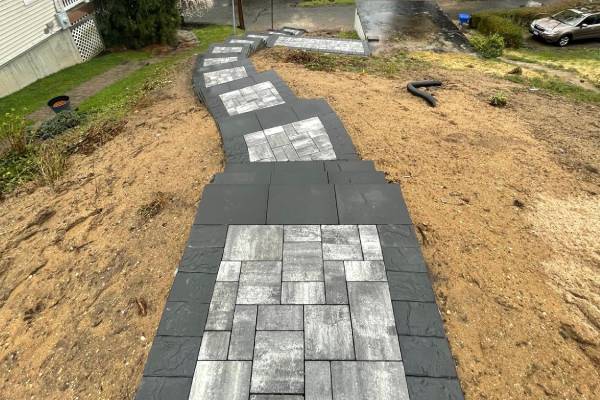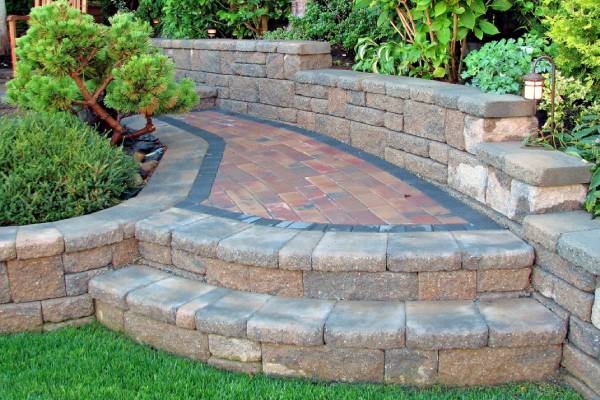Finding the right masonry contractor on Long Island is critical for a successful project. Long Island’s harsh winters, coastal storms and salt air put extra stress on home exteriors. In fact, after Superstorm Sandy, FEMA found that brick and stucco homes fared far better against wind and water than homes with lightweight siding. Solid masonry work can add decades of life and even increase home value, but only if it’s done correctly. Mistakes by unqualified workers can turn a “cheap” project into an expensive one: industry data show errors and rework often consume about 12% of a project’s budget. Cutting corners can lead to torn-out walls, permits fines, or even structural failures. In short, choosing the best masonry contractor on Long Island one with experience, qualifications and accountability matters for your safety and savings.
Work with a contractor who understands local building codes, climate challenges and Long Island soil. Local experts know to factor in freeze
thaw cycles, salt exposure and drainage issues when planning any brick or stone job. A truly reliable masonry team will ask about your exact needs (patio, walkway, retaining wall, etc.), suggest the right materials, and give a realistic timeline and cost estimate up front. Whether you need a new brick driveway or a stone patio, thorough masonry services Long Island style start with planning and end with a durable, well-built result.
Plan Your Project Before Hiring

Before you call any contractor, define exactly what you want. List the specific masonry features you need for example, a paver patio, walkway, block retaining wall, brick steps, or chimney work. Long Island’s contractors will want a clear scope to give an accurate quote. The New York State Attorney General urges homeowners to “define the work as precisely as possible” when seeking quotes. This means knowing whether you want, say, a bluestone patio versus a concrete paver patio, or a natural stone driveway apron versus brick curbing. Being clear about your needs helps prevent contractors from upselling extra work later.
Also set a realistic budget and timeline. Factor in both material and labor costs for masonry projects, which can vary widely by material (brick vs stone vs paver) and design complexity. Don’t forget permit fees: many projects require local building permits. Seasonality matters too: winter freeze thaw or spring rains can delay outdoor masonry work. Always negotiate a payment schedule rather than paying everything up front. New York law requires home improvement contracts to include a payment schedule and withholding the final payment until completion. Ask the contractor how long the work will take, and be prepared for the crew to wait for better weather if needed. Proper planning now listing out needs and agreeing on budget/timeline will help the rest go smoothly.
Verify Licenses, Insurance & Credentials
When vetting any masonry contractor Long Island wide, start by checking licenses and insurance. In Nassau and Suffolk Counties, home improvement contractors (which includes masonry and paving) must be licensed. Nassau County law specifically lists masonry work (including brick, stone, concrete, block, stucco, etc.) and paving as covered by its licensing rules. Suffolk County similarly requires contractors to hold a Home Improvement License for masonry jobs. You can even call Suffolk’s Consumer Affairs office to verify a contractor’s license and check for complaints. Never hire a contractor who refuses to show a license; New York law says unlicensed home improvement contractors cannot legally enforce their contracts and may be subject to fines or arrest.
Insurance is just as important. Ensure your contractor has both liability insurance and worker’s compensation coverage. This protects your family: if a worker is injured on the job or accidentally damages your property, you won’t be held responsible. Never let someone start work without proof of these policies. Also ask about professional credentials: many reputable masonry contractors have affiliations or certifications (for example from the Mason Contractors Association). As one industry source notes, certification gives homeowners “an objective method for determining a contractor’s quality”. At Islandwide Paving & Masonry, we carry all required Nassau/Suffolk licenses and insurance, and we’re proud to meet industry standards, so you can hire us with confidence.
Ask the Right Questions Before You Hire
Before signing anything, interview each contractor. Key questions include:
Experience with similar projects: Ask to see photos or addresses of previous patios, walls, steps or driveways they’ve built. A good contractor will happily show off past work and even let you drive by a recent job. Local references are gold neighbors who can speak to quality and reliability. (Tip: check local community forums or ask an HOA too.)
Timeline commitments: Find out who exactly will run your project. If your estimate came from a salesperson, is the same person (or a skilled crew leader) actually doing the work? Confirm the estimated start and finish dates, and what happens if the crew falls behind due to weather.
Materials used and sourcing: Ask what specific materials will be used and where they come from. For example, will the brick be standard or custom blend? Where will stone be quarried? Will your contractor provide high-quality mortar mix, or are they using cheaper substitutes? Reliable contractors will detail their materials on the estimate.
Warranty and maintenance: Does the contractor offer a guarantee on workmanship or materials? A confident, experienced mason will often warranty their work for a period (e.g. 1 year or more). Ask how they handle any necessary adjustments or repointing in the future, and whether they provide maintenance tips (like sealing or cleaning schedules) after the project.
These questions ensure you find contractors who are experienced, transparent and accountable. Take notes on their answers, and compare them. A trustworthy mason should answer clearly vague or defensive replies are red flags.
Review Portfolios and Local References
A credible masonry contractor should have a portfolio of past projects. Inspecting real examples is invaluable. Wherever possible, drive by previous jobs in your area check out neighbors’ patios, walls or chimneys that the contractor claims to have built. Look for high-quality workmanship: even joints, level surfaces, and clean finishes. Pay attention to maintenance: brick that’s badly crumbling or walls with cracked mortar indicate poor construction. Long Island’s freeze thaw climate punishes mistakes, so look for structural integrity (no bowing or bulging) and sound mortar.
Online reviews can help too, but read them with a critical eye. Homeowners often turn to Google or Yelp for feedback. Spot fake reviews by looking for overly glowing 5-star only profiles or generic language. Real reviews tend to mention specifics (“They built my fieldstone walkway and finished it on time”). Reviews that only praise a “great guy” without detail may be paid or phony. Check if multiple reviews from different customers mention similar strengths or concerns. And don’t rely solely on star ratings: read a few good and bad comments to get a balanced view. Finally, ask your friends, family or local community groups for recommendations. Word-of-mouth can uncover local masonry contractors Long Island residents trust.
Compare Multiple Quotes the Smart Way

Get at least three written estimates for your masonry project. Suffolk County’s Consumer Affairs recommends getting multiple bids to compare scope, price and materials. This not only helps you find a fair price, but ensures you’re comparing apples to apples. A low bid can be tempting, but be wary: it may mean thinner mortar, cheaper bricks, or skipping required steps. Conversely, the highest bid isn’t always the best focus on value and detail.
When comparing quotes, line up the details side by side. Check that each quote includes the same scope (e.g. same square footage of patio, same wall height, etc.), similar quality of materials (type of brick or stone, mortar mix, reinforcement) and the same timeline. For example, one contractor might quote a budget brick that weathers poorly, while another quotes premium weathered brick very different values even if price looks similar. Also compare warranties and cleanup terms: does price include finishing touches like sealing or landscaping? Don’t automatically pick the cheapest contractor; choose the bid that makes the most sense for your specifications and budget.
Watch Out for Red Flags
Sadly, some masonry scams happen on Long Island (as elsewhere). Be on guard for:
Door-to-door offers: Unsolicited contractors showing up at your door are often selling high-pressure repairs. They may claim a harmless issue (loose brick, a “dangerous” crack) and push a quick fix with leftover materials. Consumer fraud experts warn that unsolicited, low-priced door-to-door repairs are a common scam. A legitimate masonry contractor will not cold-call you with an urgent “deal.” If someone shows up uninvited, politely decline and stick to your quoted contractors.
Vague or verbal contracts: Never sign (or verbal-commit) without a detailed written estimate. Handwritten, sloppy, or missing contracts are a huge red flag. A real professional will give you a formal proposal. If a contractor tries to rush you (“Sign today, price goes up tomorrow”) or refuses to give paperwork, walk away. New York law requires a written contract for home improvement projects over $500. Always ask for an itemized written estimate before any work.
Lack of identification or licensing: If the salesperson or crew can’t show ID or license numbers, that’s suspicious. Ask to see their Nassau/Suffolk license and insurance certificates. If they hesitate or say it’s “in the truck,” be very cautious.
Large upfront demands: Reputable masons typically ask for a reasonable deposit (often 10-20%) and then progress payments. They will never demand full payment in cash before starting, and they should be willing to hold a portion until the job is inspected. If someone insists you pay 100% up front or pay cash to “lock in a discount,” that’s a sign to stop the deal.
In summary, any contractor pushing high-pressure tactics, refusing paperwork, or offering unbelievably low prices should be avoided. Trust your instincts: if something feels off, it probably is. A good contractor welcomes questions and will happily put everything in writing.
Consider Long Island’s Climate & Drainage
Long Island’s local climate affects masonry longevity. The region sees heavy rainstorms, coastal winds, and freezing winters. When water enters masonry cracks and freezes, it expands and worsens the damage. Over many seasons, this freeze thaw cycle can cause brick to spall or mortar to crumble. In fact, experts note that each time the ground freezes and thaws, it can slightly shift foundations or retaining walls under heavy frost pressure. Salt in coastal air also gradually erodes masonry surfaces.
Proper drainage and grading are equally crucial on Long Island. Poor gutter or downspout placement can lead to water pooling near foundations or patio edges, causing hydrostatic pressure and soil shifting. Even a well-built stone wall can bow over time if the ground behind it stays wet. When interviewing contractors, ask how they will handle drainage and grading. For instance, will they install drainage pipes behind retaining walls, or ensure the ground slopes away from your house? Your contractor should understand that Long Island soils (often sandy or clay) combined with moisture can expand and contract, so waterproofing, flashings, and proper base preparation are essential. Addressing these factors upfront will prevent costly repairs later.
Explore Material Options for Your Project
The masonry material you choose will affect cost, look, and durability. Some common options for Long Island homes are:
Brick: Classic and low-maintenance, brick offers uniform appearance and color options. Brick walls and paths resist fire and pests, and can last over a century with proper workmanship. Brick can be laid in various patterns (herringbone, basketweave) for visual interest. However, brick is limited to one shape and size per type, and the mortar joints will need occasional repointing (every 20-30 years) to prevent moisture seepage.
Natural Stone (e.g. bluestone, fieldstone): Stones like bluestone or granite give a unique, elegant look. Each stone’s color and texture varies naturally. Stone is extremely durable and weathers gracefully. It is heavier and often more expensive to install than brick or pavers. Some stones (like bluestone) are slippery when wet, so consider texture for steps. A qualified mason knows which stone suits your soil and freeze thaw climate.
Concrete Pavers: Pavers are an affordable, versatile option. They come in many shapes, sizes and colors, and can mimic natural stone or brick. Properly installed concrete pavers on a compacted base can last decades. They are easier to replace if one breaks. On the downside, lower-end pavers may fade or chip over time, and they require sanded joints (polymeric sand) to prevent weed growth and shifting.
Stoops, Steps and Retaining Wall Blocks: For steps or short walls, there are specialty concrete blocks and precast units (like segmental wall blocks). These are designed for strength and easy installation. If your project involves heavy loads (driveway steps, terracing), ask your contractor about reinforced concrete blocks or poured concrete alternatives.
Each material has pros and cons; the right choice depends on appearance, load requirements, and budget. Discuss these with the contractor. For example, Islandwide Paving & Masonry can source specialty blends of mortar or locally quarried stone that suit Long Island’s conditions (and sometimes at better cost than retail outlets).
Get Everything in Writing
Once you’ve picked a contractor, insist on a detailed written estimate and contract before any work begins. This step cannot be skipped. The contract should clearly list the scope of work (what exactly will be built), the materials (including brands/types), the timeline, and a payment schedule. It should also state who is responsible for permits and inspections. Never sign a blank or vague contract. The New York State Attorney General explicitly warns homeowners to get all terms in writing do not rely on verbal promises.
In the estimate, look for an itemized breakdown: line items for materials (e.g. “500 bricks”, “yard of concrete”, “150 sq. ft. of concrete pavers”), labor costs, and additional fees. Check that local permit fees or waste disposal charges aren’t buried as surprise costs. Also clarify cleanup expectations: Will the crew haul away rubble and sweep the site, or is that extra? Everything should be spelled out to avoid disputes later.
Finally, review the warranty terms in the contract. A trustworthy masonry contractor will stand behind their work. If possible, have the contract include a warranty period for labor (often 1 year) and note any manufacturer warranties on materials. This protects you in the unlikely event of early failures. Remember: do not pay the full balance until the work is finished and inspected. Holding back some payment motivates the contractor to fix any remaining issues.
Post-Installation Maintenance & Care
Once the masonry work is done, keep it in top shape. Even the best masonry needs periodic care. Schedule inspections and maintenance at least annually (spring or fall) to catch small issues early. Look for cracks, crumbled mortar or loose stones. If you see mortar joints that look eroded or are allowing water in, have them repointed promptly. Experts advise replacing torn or aged sealants and backer rods around expansion joints and repairing cracked mortar via repointing before water can cause bigger damage.
Cleaning masonry is also important. Remove dirt, mold or efflorescence (white salt streaks) gently with appropriate methods. Many masons recommend sealing new masonry and then resealing it every 3-5 years with a breathable masonry sealer to repel water. Always use products meant for the material (e.g. brick vs pavers). Avoid heavy power-washing on older brick, which can erode the mortar. In coastal areas, check for salt buildup on surfaces and clean as needed.
If you had a retaining wall or driveway installed, keep the drainage clear: clean out any block weeps or gravel backslope and make sure gutters splash water far from the structure. Proper maintenance saves money over time. As the Brick Industry Association notes, routine repointing, sealant replacement and moisture inspections can extend the life of brickwork for decades. Schedule a professional inspection by Islandwide Paving & Masonry every few years if needed to keep small fixes from becoming major rehabs.
Support Local Long Island Masonry Experts
Hiring a Long Island-based contractor has real advantages. Local teams know the island’s building codes, weather quirks and soil conditions inside out. They can get to your home quickly, communicate easily and take pride in their community reputation. Industry experts point out that choosing local contractors “not only aligns with regulatory requirements but also with the local environment and culture”. It also keeps dollars in our region: a Wilmington construction expert notes that when you “choose a local contractor, you’re contributing to the community’s economic health… Local contractors employ local talent, pay local taxes, and reinvest in the region”. In other words, hiring Islandwide Paving & Masonry means you’re supporting Long Island’s economy while getting faster response and accountability we live and work here too.
Ready to get started? Use the checklist below to make sure you’re hiring the best masonry contractor on Long Island:
Step-by-Step Checklist for Hiring the Right Contractor
-
Define your project (patio, walkway, wall, etc.) and sketch out needs.
-
Set a budget & timeline, including permits and weather delays.
-
Check licenses and insurance: Confirm Nassau/Suffolk home improvement license and coverage.
-
Ask key questions (experience, references, materials, warranties) before deciding.
-
Review past work: Drive by local projects and read real online reviews.
-
Get 3+ written quotes: Compare scope of work, materials, timelines side-by-side.
-
Watch for red flags: Avoid door-to-door sales, vague contracts or big upfront demands.
-
Ensure climate prep: Confirm the contractor will handle drainage and freeze thaw issues.
-
Write it all down: Insist on a detailed written contract with estimates, timeline, and payment schedule.
-
Maintain after installation: Plan for sealing, cleaning, and periodic inspections to protect your investment.
By following these steps, you’ll protect your home and pocketbook. Contact Islandwide Paving & Masonry anytime to discuss your project. We are a local Long Island paving and masonry contractor with decades of experience on Long Island, and we stand by our work. Request a free quote today at (631) 710-1995 or visit our website. Let our experts put their experience to work for you.

